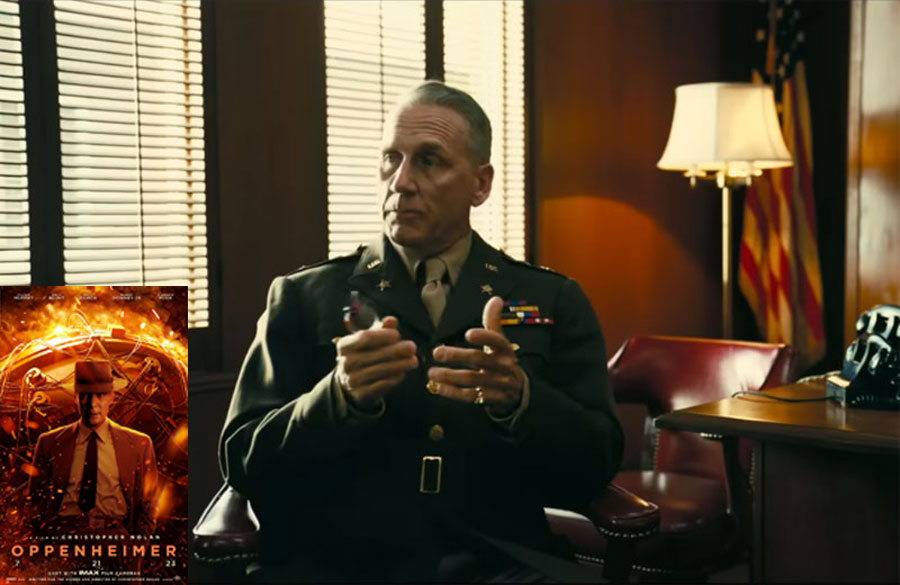
Christopher Nolan’s “Oppenheimer” Sheds New Light on the Making of the Atomic Bomb
In the latest masterpiece from acclaimed filmmaker Christopher Nolan, “Oppenheimer” takes audiences on an intense and immersive journey into the life and challenges of J. Robert Oppenheimer, the key scientist behind the development of the atomic bomb during World War II. The film, based on the Pulitzer Prize-winning biography “American Prometheus,” captures the intrigue, drama, and ethical dilemmas of a momentous era.
The Star-Studded Cast
Starring Cillian Murphy as Oppenheimer, the film’s portrayal of the historical figure is widely described as “dazzling.” Murphy undertook significant research to bring authenticity to his role, focusing on the character of Oppenheimer rather than the mechanics of the atomic bomb. Emily Blunt plays Katherine “Kitty” Oppenheimer, drawn to the complexity and challenging political backdrop of her character. Matt Damon, Robert Downey Jr., Florence Pugh, Josh Hartnett, and Casey Affleck round out a star-studded cast, each providing compelling performances.
One of the film’s key scenes is a high-level military meeting where Oppenheimer, along with Generals George C. Marshall and Leslie Groves, persuades the military of the necessity of deploying the atomic bomb against Japan. Will Roberts’ portrayal of General Marshall has been especially praised, with Melissa Davis, Director of Library and Archives at the George C. Marshall Foundation, stating that Roberts wasn’t merely acting as Marshall but truly “being Marshall.”
The psychological impact of the atomic explosion is vividly described in the film, as Cillian Murphy’s Oppenheimer explains the horrors of “A pillar of fire, 10,000 feet tall” and the deadly effects of the bomb. The gravity of the decision is emphasized, as Matt Damon’s General Groves declares the intention to demonstrate the weapon’s power unambiguously “Twice… Once to show the weapon’s power, and a second to show we can keep doing this, until they surrender.”
Rich Character Development
Beyond the historical events, “Oppenheimer” also dives into the emotional lives and internal conflicts of its characters. Blunt’s Katherine Oppenheimer harbors deep anger towards the political system, refusing to conform to societal norms. Robert Downey Jr.’s Lewis Strauss is portrayed not as a mere villain but as a complex and multifaceted character. Florence Pugh’s portrayal of Jean Tatlock is filled with beauty and tragedy, offering a heart-rending perspective.
Josh Hartnett’s role as Ernest Lawrence and Casey Affleck’s chilling performance as Boris Pash further enrich the film’s tapestry, with viewers lauding their contributions.
Audience and Critical Reception
Critics have hailed “Oppenheimer” as one of the best films of the year, praising Nolan’s dynamic direction, intense action sequences, and immersive soundscapes. Among the nearly 6,000 viewer reviews, many reflect on the emotional resonance of the film. One review by Abin Tom Sebastian captured the sentiment, stating, “Cillian Murphy’s portrayal of Oppenheimer is nothing short of revelatory… Murphy’s artistry paints a vivid picture of a shattered man.”
A Lasting Impact
“Oppenheimer” is more than a historical biopic; it’s a reflection on the power of science, the burden of responsibility, and the complex moral decisions that shape history. Nolan’s ability to bring these themes to life through captivating visuals and brilliant performances creates a cinematic experience that resonates deeply.
From its focus on a single pivotal meeting that changed the course of the war to the in-depth exploration of each character’s psyche, “Oppenheimer” offers a multifaceted look at a critical moment in history. The film’s success lies in its ability to humanize figures from the past, allowing the audience to connect with them on an emotional level while contemplating the profound consequences of their actions.
As a testament to the dedication of the cast, notably Will Roberts‘ commitment to accurately and respectfully portraying General Marshall, the film stands as a powerful reminder of history’s complexity. “Oppenheimer” succeeds in portraying a monumental event with nuance, intensity, and empathy, making it a must-watch for audiences interested in history, drama, and thought-provoking storytelling.



